Europolitics Watch #1 - The Big Breturn??
Fair warning: anyone believing that the UK is approaching more EU alignment has grossly underestimated the depths of mutual animosity and distrust that’s currently splitting the Tories from within
Welcome to the first edition of Europolitics - our new in-depth series on European affairs. The series is mostly written for non-Europeans, so natives of the countries we analyze might find the analyses a bit simple, but we hope you will enjoy nonetheless. To kick things off, we decided to take a look at the one country we might offend the most by putting them in the “Europolitics” category - good old Britannia!
It’s not done yet?!
‘Getting Brexit Done’ was the selling point of the Conservative Party pre-pandemic. Former Conservative Prime Minister, Boris Johnson, effectively managed to frame a 2019 snap-election around the slogan and was handed a landslide victory in return. One of the successes of the 2019 election was marrying the Conservative center and populist right; the Conservatives’ embrace of Brexit helped reunite the party around a leader who promised to ‘get Brexit done’.
Thus, sails were set for a swift(er) UK secession from the trade union but, of course, nothing with the EU is easy nor swift. Eventually, the collective attention of the UK public and politicians drifted away from Brexit discussions in 2020 and turned to the growing spread of the Coronavirus.
Fast forward to late November 2022, The Brexit headache has come back to haunt Johnson’s former Chancellor and new Conservative PM, Rishi Sunak. The poor performance of the UK economy plays a large part in the re-emergence of Brexit critics. These critics were easily brushed off in the immediate aftermath of the pandemic, but as time passed, it has become increasingly difficult for UK decision-makers to camouflage the current economic hardships behind lockdown setbacks: According to the OECD, the UK is predicted to have the worst GDP growth in the next two years among the G20, second only to Russia.
The UK Economy Bringing Brexit Back
Unsurprisingly, the ‘Cost of living crisis’ as the UK’s combined energy and inflation crisis has been dubbed, is the most important issue to voters: According to YouGov, 68% of Britons believe the economy is the most important issue facing the country, compared to healthcare (44%) and immigration (33%) sitting at the second and third spot, respectively. How Sunak delivers on the crisis will be the bar he will be measured against leading up to the 2024 parliamentary elections.
It is difficult to overstate the dire economic situation that the UK is currently in - let’s look at three simple charts:
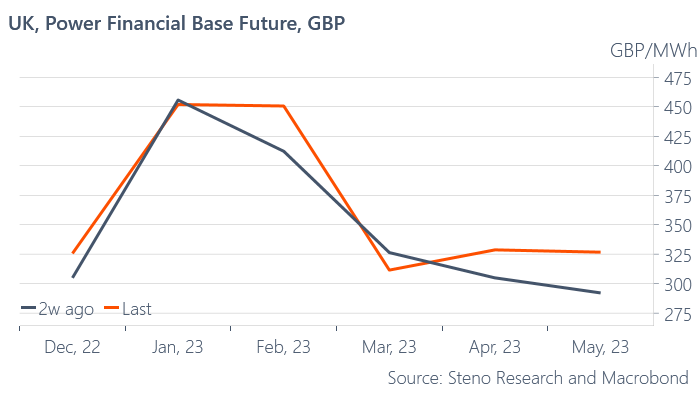
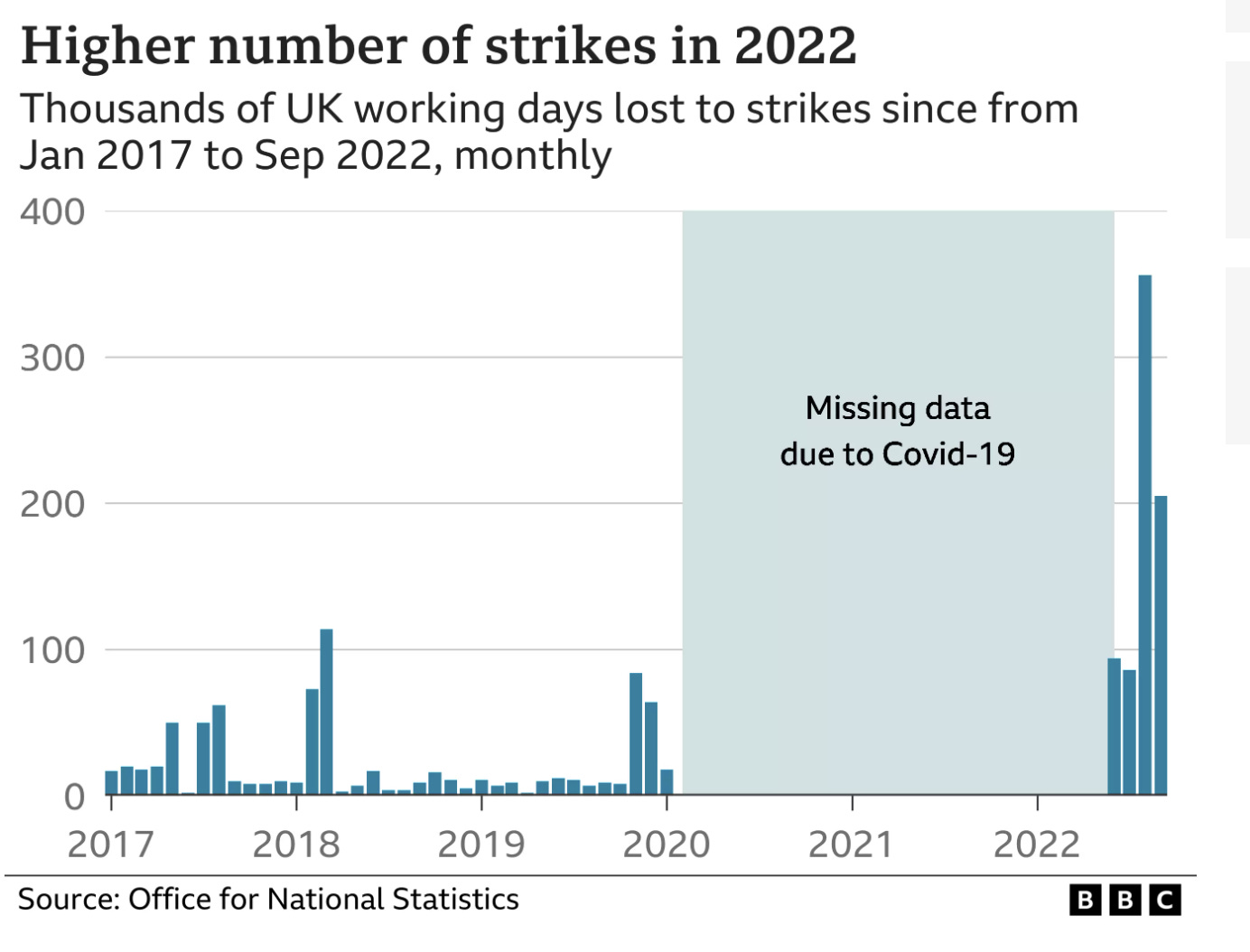
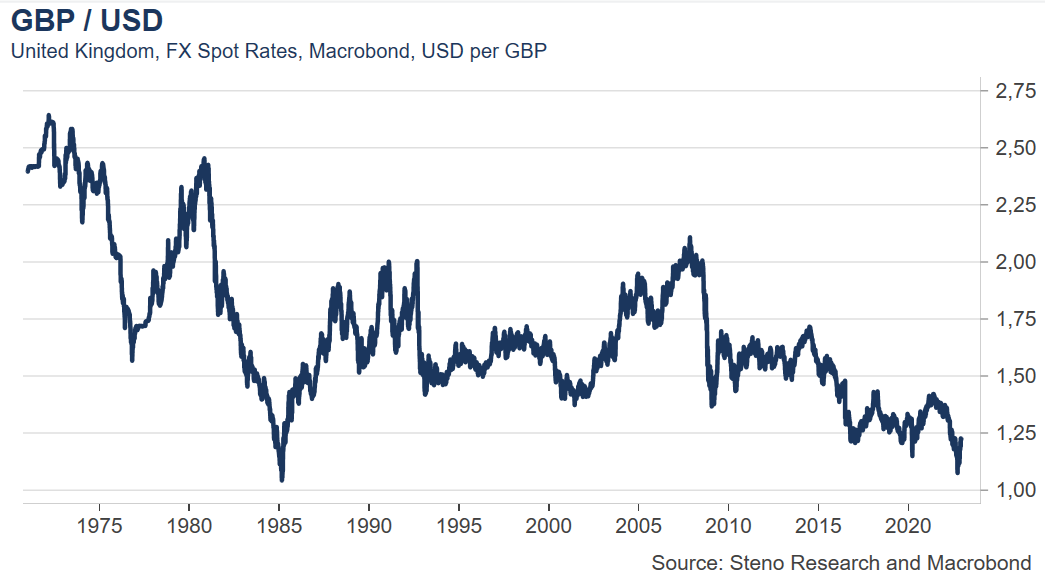
Brexit critics believe that the UK’s decision to leave the EU in 2016 has accelerated the already volatile economic situation. The Office for Budget Responsibility (OBR), Britain’s official finances watchdog has substantiated these claims. In an official report published on November 17th, the OBR stated: “The latest evidence suggests that Brexit has reduced both overall trade volumes and the number of trading relationships between U.K. and EU firms,”. That being said, few people buy into the idea that pursuing a Swiss-style relationship with the UK, will magically fix Britain’s economy: The UK has deep-rooted productivity issues, housing problems, a widening gap between London and the rest of the country, eroding welfare institutions, namely the National Health Service (NHS) - all trends which have been going on for years. Not to mention the very immediate financial repercussions of Liz Truss’ 44-day premiership. Still, Brexit is an obvious target, for anyone who was probably leaning Remain anyway.
More Governmental Hangovers and the appeal of regulatory alignment
Sunak has inherited an additional two headaches from his predecessors which have helped propel Brexit back into the center of public debate: The Northern Ireland Protocol and The Retained EU Law bill
The problem with both pieces of legislation is that they are impossible for Sunak to ignore: Northern Ireland has effectively been ruled by high-ranking civil servants since February because the unionist party, DUP, has refused to form a government while the Northern Ireland Protocol issue remains unresolved. Meanwhile, the Retained EU Laws Bill will sunset 3800 UK laws at the end of next year if lawmakers don’t step in. It is hard to say what the full consequences of these widespread regulatory vacuums would be, but one thing is certain; doing business between the UK and EU is not getting easier. At worst, the lack of a stable framework for cooperation between the UK and EU will amplify existing skepticism among financial services providers in London and foreign investors, and further destabilize the UK economy.
The worst thing to hit a Sunak premiership would be the triggering of a market response ala Truss’s mini-budget. It is not surprising, then, that Sunak might be tempted to air the idea that more EU regulatory alignment is on the horizon for Britain. Keeping up appearances towards the EU, even if no solid action plan for re-alignment is in the pipeline, goes a long way not to make markets panic.
Is more regulatory alignment underway?
Getting the main rumor quickly out of the way; a Swiss model is out of the question. Switzerland is part of the Schengen agreement meaning all EU residents can reside in Switzerland with minimal barriers to entry. This won’t sit right with many Leave voters, whose main priority was controlling immigration to the UK. A Swiss model will inevitably also require an EU body, namely the Court of Justice of the European Union, to have ultimate authority over parts of UK legislation. This is a red line to even moderate Brexiteers in the Conservative Party. Even if UK policymakers grew an appetite for a Swiss model, the EU is unlikely to support such a deal. The Trade Union gravely dislikes the model, and there are currently active discussions between the EU and Switzerland to change the dynamic.
Tory rebels and the potent Retain EU Laws bill
With a Swiss deal out of the picture, the more interesting question is whether the UK is looking into more regulatory alignment at all? The Retained EU Law bill will be an early litmus test. The prognosis remains gloomy, however. While pushing back the ‘sunset’ date of EU-referenced laws in the UK might seem like an uncontroversial amendment to the bill, one should be careful not to underestimate the graveness of mutual distrust hindering Conservative party discipline at the moment. Party rebels have been emboldened by the Truss experience which showcased the power of backbenchers to oust an unpopular PM. In the last three months, the UK has had 3 PM, so far. Currently, Conservative MP’s loyalties are scattered across Johnson, Truss and Sunak as well as ideological flanks, meaning every vote in the house of Commons is essentially a confidence vote.
The Retained EU Law Bill is particularly potent due to longtime tensions between hardline Leavers and current chancellor and former remainder, Jeremy Hunt. To Conservative Leavers, any ‘softening’’ of The Retainment EU Law Bill will be perceived as an attempt to weaken the grasp they have over the party. According to our contacts in Westminster, the rumors about a closer relationship with the EU have only added to Leavers’ fears that centrist Conservatives are staging an inside coup. Considering the number of MPs who have built their career on Euroscepticism. The processing of the Retained EU Law Bill in the House of Commons will likely go ahead as planned. Any real opposition will have to come from the House of Lords.
In sum, optimistic Remainers should be cautious not to think that the rumors coming out of Whitehall are a sign that the Conservative leadership is doing a U-turn on Brexit in the light of the current economic situation. Rather, it is political signaling from a government that would like to appear more pragmatic and less like a loose hand grenade than its predecessor. Sunak’s main priority is to keep up appearances towards the EU to avoid further (financial) instability, but ambitions will likely fall short of actual regulatory alignment. The emergence of the Reform Party further supports this analysis. Nigel Farage, leader of the Reform Party, is setting the stage for a comeback in the 2024 general elections. If Sunak was to turn more pro-EU, it would pave the way for Farage's electoral campaign.
Brexit prospects with a change of government
Following the turmoil in the Conservative Party, the Labour Party has built a historical lead in the polls, but a change of government is not going to lead to a Swiss deal in the short nor medium-term. Labour leader, Keir Starmer, has said so decidedly already. One of the keys to election victory in 2024 for Labour, will be to take back ‘Red Wall’ constituencies and convince traditional Labour voters who voted for Brexit and Boris Johnson to get back into the Labour fold. These voters are unlikely to support a radical turnaround on Brexit, including re-entering the Schengen agreement. These strategic concerns might also explain why 30 % of Labour voters approve of Starmer’s decision not to seek a UK re-join of the EU.
Moving forward, Starmer and Sunak might find themselves working for the same team when it comes to carefully balancing EU policies. For both, there is a strong need to signal that EU-UK relations are stabilizing, but neither can pursue significant realignment without alienating swing voters. Yet, a ‘working with Brexit approach’ is not going to be enough long-term for the passionate re-join supporters that Starmer also needs to maintain to secure the premiership. This is a group that will only grow as time passes when Eurosceptic older voters pass away and younger pro-EU Britons come of age, intensifying the need for the UK to make a relationship work with the EU. The Brexit question is not going away any time soon.
But will Labour win the next election? Read more in our part two on the Sunak premiership - coming soon.



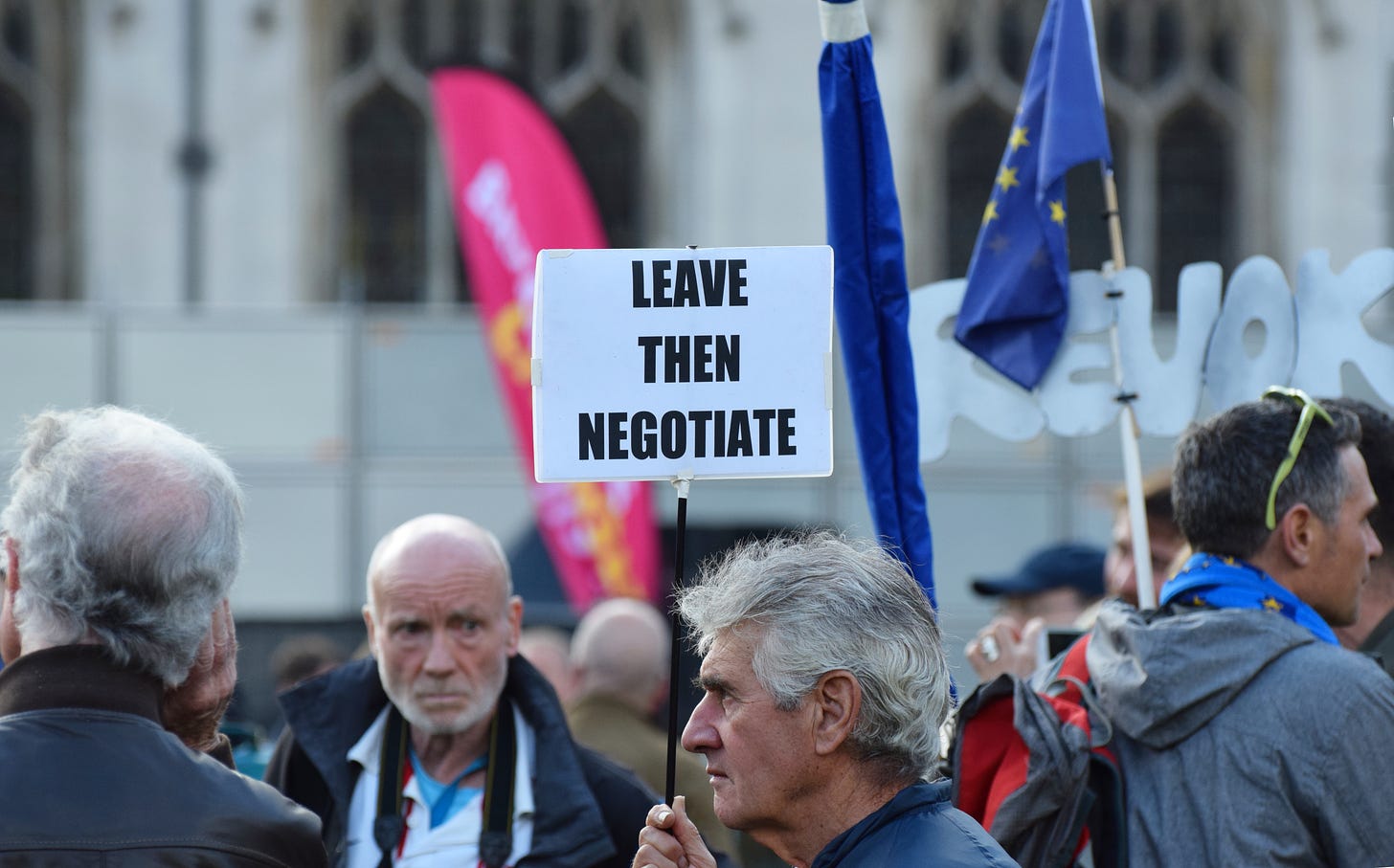
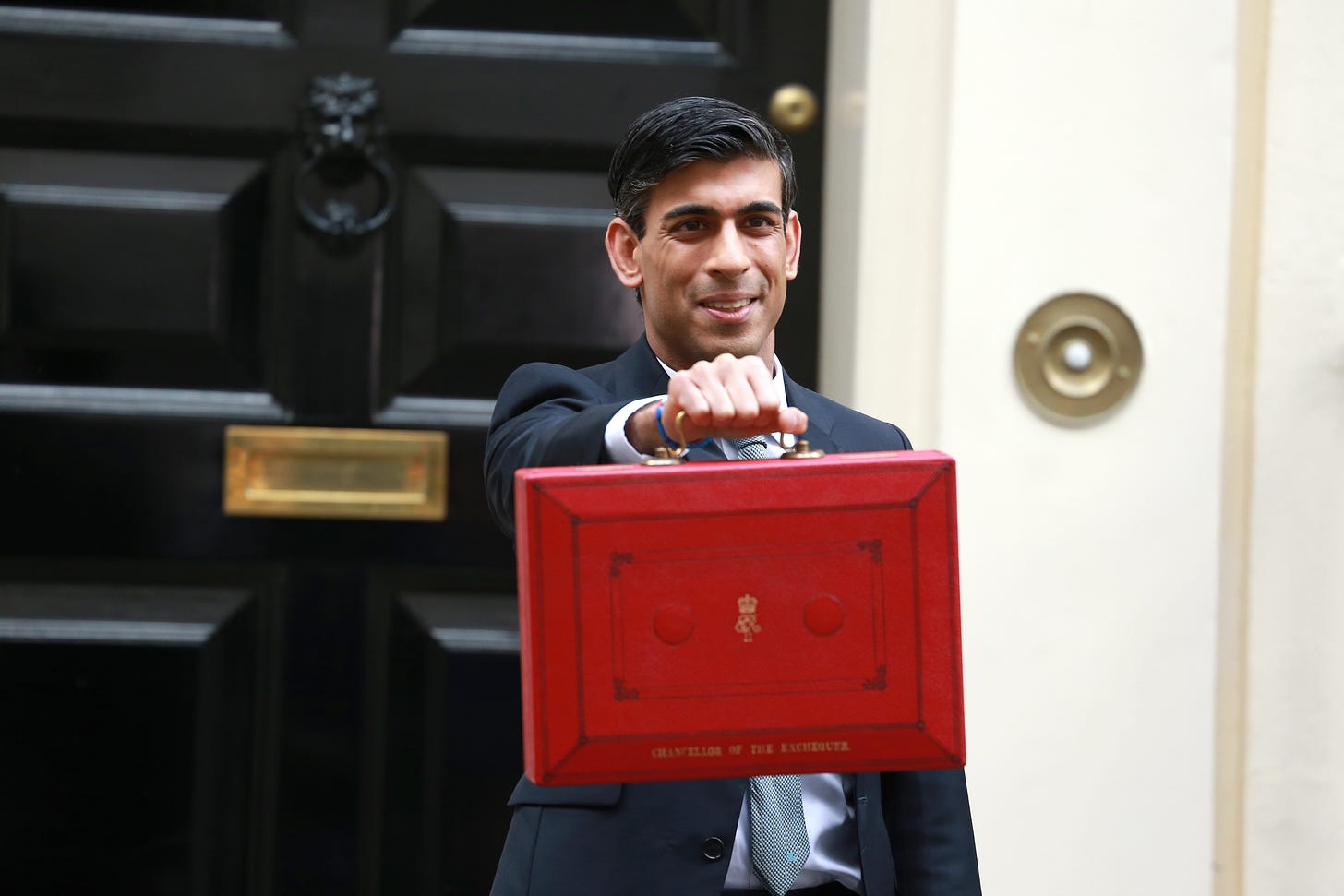


Recent polls show that around 57% of the population realize that Brexit was a mistake. The fact that that large majority is unrepresented by either of the two major parties demonstrates the complete failure of the two-party "first part the post" electoral system. The best hope for the country is for the next election to result in a "hung parliament" with the minor parties (SNP and Lib Dems) holding the balance of power. Hopefully the country can then adopt a more democratic electoral system (proportional representation) and a closer alignment with the EU. It is utter madness for the entire country to be held to ransom by the "red wall voters" or "swing voters" who are a tiny minority of the overall electorate.
Very informative. Thank you, even though it has made me even more depressed (as a Brit).